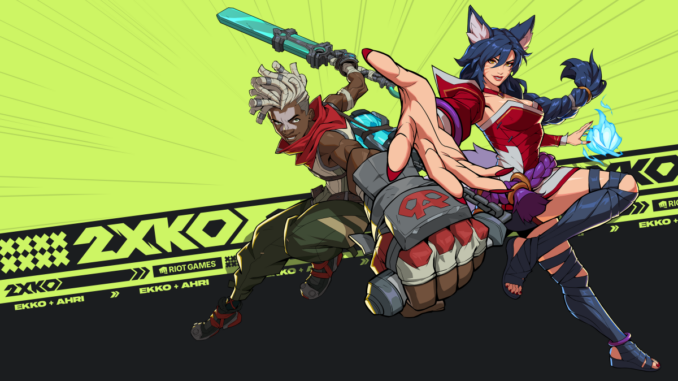
[ad_1]
Riot Games has announced the final name for its upcoming fighting game set in the world of League of Legends. Formerly known as Project L, 2XKO is Riot’s first entry into the fighting game genre. The team also unveiled its community-first roadmap before the title’s planned launch on PlayStation 5, Xbox Series S|X and PC in 2025.
The title — 2XKO — is a reference to the title’s 2v2 format. Unlike other 2v2 fighters, 2XKO lets players play both cooperatively and competitively. Players can form teams, with each member controlling one character on the team that can swap in and out.
Riot clearly has esports ambitions for 2XKO, and is building inroads into the Fighting Game Community (FGC). The developer first showcased the title at 2023’s EVO, the largest fighting game tournament globally. Players were able to test the game, giving Riot valuable feedback directly.
Through out 2024, Riot plans to host playable demos of 2XKO across the world, including at Evo Japan in April. For fans that won’t be able to make it to a physical demo, Riot also hopes to start at-home playtesting before the end of the year.
GB Event
GamesBeat Summit Call for Speakers
We’re thrilled to open our call for speakers to our flagship event, GamesBeat Summit 2024 hosted in Los Angeles, where we will explore the theme of “Resilience and Adaption”.
Apply to speak here
“You’re going to see a lot more of us this year and we think that this community-first approach is the most effective way to make 2XKO the best game it could be at launch and beyond,” said Tom Cannon, senior director and executive producer for 2XKO.
Of course, 2XKO has a head start building relationships with the FGC thanks to its development leadership. Tom and Tony Cannon lead the title’s development team. The Cannon brothers were founders of the EVO Championship Series (EVO) and the rollback netcode program, GGPO.
Riot’s esports ambitions
This open-development strategy is allowing Riot to build up its connections to fighting game players before launch. Perhaps more importantly, these demos allow the developer to highlight the differences, both in-game and operationally, in Riot’s approach to the FGC.
2XKO’s co-op format is relatively unique among fighting games and could be a competitive advantage. Typically, the FGC’s most prestigious tournaments are open-bracket with players competing as individuals. While this format has its advantages, the higher variance and solo format is not the most attractive model for esports teams to sign players due to inconsistent exposure. Creating a more viable team-based format distinguishes 2XKO as a game and as an esport.
Similarly, sponsorships and prize pools in the FGC tend to be less common outside of some major tournaments. EVO 2023’s record-breaking Street Fighter 6 tournament with over 7,000 entrants awarded around $70,000 to the top 16. In comparison, Riot’s first ever open bracket tournament for TeamFight Tactics for 512 players awarded $300,000 to the top 128 finishers. Prize pools for Riot’s premiere esports — League of Legends and Valorant — stretch into the millions. Outside of this year’s record setting $2 million prize pool for Capcom X and Brawlhalla awarding $1.3 million across its 2022 competitive season, no FGC title can match the economic scale Riot regularly pulls off.
Outside of a handful of top players in each game, few FGC competitors can make a career out of playing. The FGC’s grassroots approach keeps the community lean (and perhaps more sustainable). However, the intended lack of infrastructure has capped the community’s commercial potential.
Riot has the opportunity to reshape the FGC landscape. For a fraction of the resources it spends on League of Legends or Valorant, Riot can easily outspend its FGC competitors. Riot’s reputation with brands could also bring more resources and visibility to 2XKO than any other fighter. The financial incentives will likely attract top FGC talent too.
GamesBeat’s creed when covering the game industry is “where passion meets business.” What does this mean? We want to tell you how the news matters to you — not just as a decision-maker at a game studio, but also as a fan of games. Whether you read our articles, listen to our podcasts, or watch our videos, GamesBeat will help you learn about the industry and enjoy engaging with it. Discover our Briefings.
[ad_2]
Source link




Be the first to comment